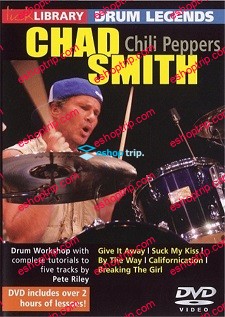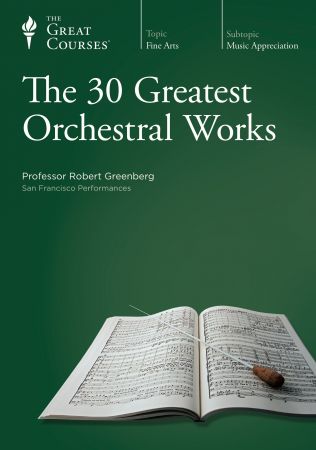Last updated 10/2024
MP4 | Video: h264, 1920×1080 | Audio: AAC, 44.1 KHz
Language: English | Size: 384.58 MB | Duration: 2h 13m
A complete course covering the Trinity Grade 4 Music Theory syllabus.
What you’ll learn
Pass Trinity Grade 4 Music Theory with Distinction!
Build on your knowledge of how music works, and how to pass the Trinity exam
Further your skills in composition and harmony
Practise your skills with the included PDF, exercises and tests!
Requirements
You should already have covered the topics in Trinity Grades 1-3 Music Theory
You don’t need any extra equipment or software to take this course – all materials are provided.
You need to be motivated to learn how music works
Description
Grade 4 Music Theory TrinityThis Grade 4 Music Theory video courses covers the Trinity syllabus in full.Rhythm and FormTime signatures of 5/8, 7/8 and 5/4Rules for grouping note and rest values within 5/8, 7/8 and 5/4, (including grouping indications at the beginning of bars or scores, e.g. 2,3 or 3,2)Harmonic rhythm (how fast chords change and whether regular or irregular)Writing a rhythm to fit with words, writing words under a tune, and correcting mistakes in word setting (based on the rule that important words (or syllables) should be placed on the main beats of a bar)Saying how many sections there are in a piece (form)PitchNaming and using notes in alto clefEb and A major keys (for all major keys for the grade: scales, key signatures, one-octave arpeggios, broken chords and tonic triads (root, first or second inversion)C and F# minor keys (for all minor keys for the grade: scales — natural (Aeolian mode) and harmonic and melodic, key signatures, one-octave arpeggios, broken chords and tonic triads (root, first or second inversion)Inversions of tonic triads. Labelled:— as a chord symbol above the music (e.g. C, C/E and C/G in the key of C major or Am, Am/C and Am/E in the key of A minor)— as a Roman numeral below the music (e.g. I, Ib and Ic in the key of C major or i, ib and ic in the key of A minor)Identifying the key of a piece in Eb or A major and C or F# minor4th degree of the major/minor scale being known as the subdominant or fa (major keys only)Subdominant triads for all keys covered so farMajor/minor subdominant and dominant triads labelled:— as a chord symbol above the music (e.g. for subdominant, F in the key of C major or Dm (or D where the 6th degree is raised) in the key of A minor)— as a Roman numeral below the music (e.g. for subdominant IV in the key of C major or iv (or IV where the 6th degree is raised) in the key of A minorRecognising a plagal cadence in the home key (major or minor)Enharmonic equivalentsRecognising chromatic scales or passages from chromatic scalesIntervals (augmented 4ths and diminished 5ths)Concept of compound intervalsUnderstanding parallel 5ths and octavesDominant seventh chords of all keys covered so farDominant seventh chords labelled:— as a chord symbol above the music (e.g. G7 in the key of C major or E7 in the key of A minor)— as a Roman numeral below the music (e.g. V7 in the key of C major or V7 in the key of A minor)Writing subdominant or dominant chords in root position in any key for the grade as well-balanced4-part chords for SATBTransposing a tune up or down a perfect 4th or 5th (within the keys for the grade) or for a transposing instrument for the gradeRecognising and writing unaccented passing notesRanges (and transposing intervals where appropriate) of French horn, descant recorder, oboe, viola, double bass and guitar as defined in the workbookKnowing which families the above instruments come from (brass, woodwind, string)Musical terms and symbols
Overview
Section 1: Introduction
Lecture 1 Introduction to Trinity Grade 4 Music Theory
Section 2: Pitch
Lecture 2 Enharmonic Equivalents
Lecture 3 The Alto Clef
Section 3: Rhythm
Lecture 4 Regular and Irregular Time Signatures
Lecture 5 Time Signatures – 5/8, 7/8 and 7/4
Lecture 6 Beaming – Simple and Compound
Section 4: Scales and Keys
Lecture 7 A Major Scale
Lecture 8 E♭ Major Scale
Lecture 9 F# Minor Scale
Lecture 10 C minor Scale
Lecture 11 Key Signatures in the Alto Clef
Lecture 12 Technical Names of Notes
Lecture 13 Identifying the Key
Lecture 14 Chromatic Scales
Lecture 15 Scales and Arpeggios in the Alto Clef
Lecture 16 Scales Reference PDF
Section 5: Intervals and Transposition
Lecture 17 Working Out any Interval
Lecture 18 Compound Intervals
Lecture 19 Intervals in the Alto Clef
Lecture 20 The Tritone
Lecture 21 Transposition Between Clefs
Lecture 22 Transposition by a 4th or 5th
Section 6: Chords
Lecture 23 Chord I (Tonic Triad)
Lecture 24 Chord V (Dominant Triad)
Lecture 25 Chord v (Minor Dominant in Minor Keys)
Lecture 26 Chord IV (Subdominant Triad)
Lecture 27 Chord IV (Major Subdominant in Minor Keys)
Lecture 28 Chord V7 (Dominant 7th)
Lecture 29 Chord Inversions
Lecture 30 Working Out Chord Inversions
Lecture 31 Chord Symbols
Lecture 32 SATB Chords Review
Section 7: Chord Progressions
Lecture 33 Plagal Cadence
Lecture 34 Harmonic Rhythm
Section 8: Decoration
Lecture 35 Introduction to Decoration
Lecture 36 Unaccented Passing Notes
Section 9: Voice Leading
Lecture 37 What is Voice Leading?
Lecture 38 Conjunct and Disjunct Motion
Lecture 39 Augmented & Diminished Melodic Intervals
Lecture 40 Augmented & Diminished Harmonic Intervals
Lecture 41 Leading Notes
Lecture 42 7ths
Lecture 43 Consecutive 5ths and Octaves
Section 10: Composition
Lecture 44 Composition
Lecture 45 Setting Words to a Rhythm
Lecture 46 2-Part Compositions with Passing Notes – Introduction
Lecture 47 2-Part Composition – Adding the Melody
Lecture 48 2-Part Composition – Adding the Bass
Lecture 49 Motifs
Section 11: Orchestration
Lecture 50 String Instruments
Lecture 51 Woodwind Instruments
Section 12: Musical Terms
Lecture 52 Musical Terms
Section 13: Trinity Grade 4 Practice Test
Lecture 53 Trinity Grade 4 Practice Test
This course is for candidates preparing for Trinity Grade 4 Music Theory
https://anonymz.com/?https://www.udemy.com/course/trinity-grade-4-music-theory/










